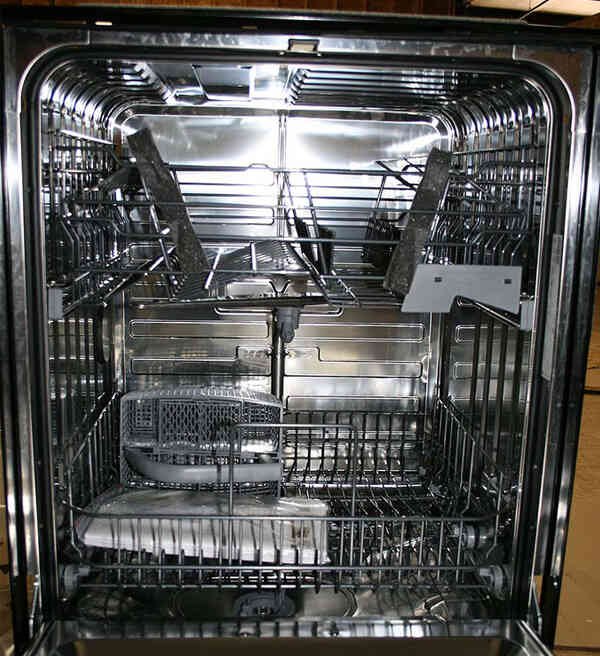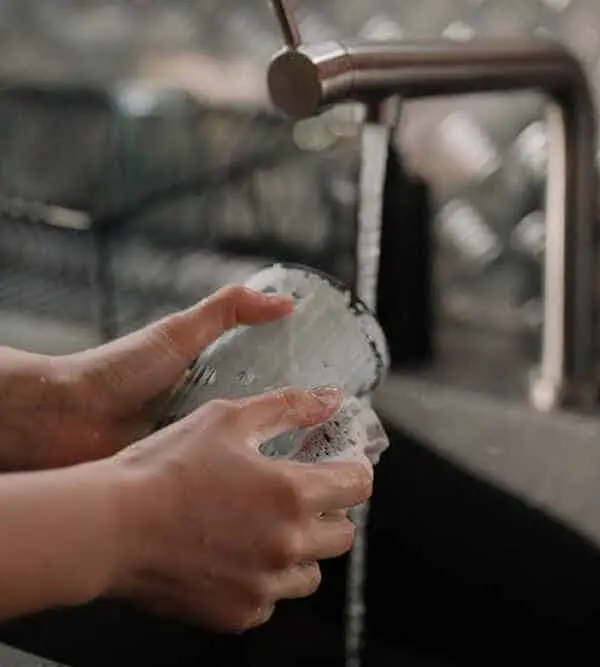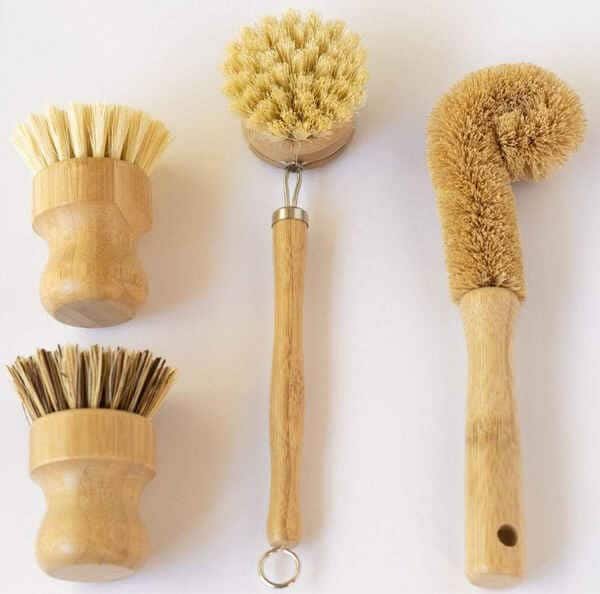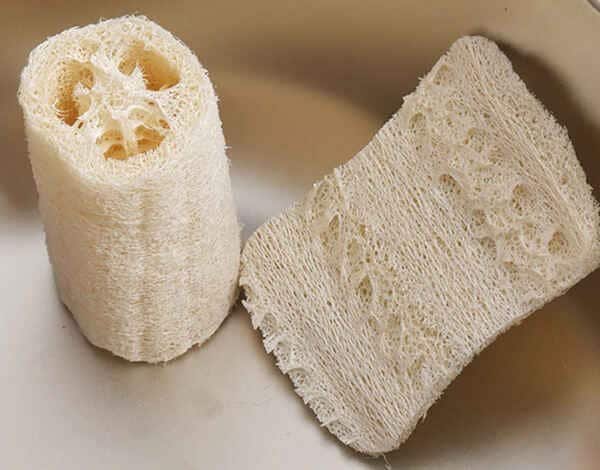8 Zero Waste Dishwashing Tips That Saves Your Money
As an Amazon Associate, Ecotero earns from qualifying purchases.
Are you looking for useful zero waste dishwashing tips that can also save you money? Then you’re in the right place.
In this article, we will share 8 practical zero waste dishwashing tips that will effectively protect the environment and your wallet.
Furthermore, we will also share some of the best eco-friendly dishwashing products that many conscious consumers like you love.
And finally, there is also a FAQ section below where we answer common questions people have about zero waste and eco-friendly dishwashing.
There’s much to learn, so let’s dive right in.
1. Soak dirty dishes properly
Soaking the dishes with water and soap solution will help remove grime, oil, grease, and charred food particles more quickly.

This simple practice can help avoid unnecessary consumption of soap, water, time, and other resources.
And less consumption of resources, less expenses.
Moreover, keep food from drying on your plate, which can be tough to remove later, by wiping or scraping the food particles immediately after eating.
This also helps avoid using running water to rinse off any food debris when it’s time to wash them.
2. Make the switch to an efficient dishwasher
Many studies proves that using a dishwasher is more eco-friendly than hand washing your dishes.
This is especially true if you’re using eco-friendly dishwashers that are designed to be water and energy-efficient.

And contrary to what some people believe, there are many benefits to having a dishwasher besides reducing waste and pollution.
For instance, people with carpal tunnel or other hand surgeries are better off with a dishwasher.
Another scenario where dishwashers can be a more efficient choice than handwashing is for big families that create plenty of dirty dishes every time they eat.
But when shopping for eco-friendly dishwashers, get a dishwasher with an ENERGY STAR rating.

ENERGY STAR is a government-backed authority that helps consumers find products that can save money and protects the environment through energy-efficient practices
The higher the ENERGY STAR rating of a dishwasher, the better it is for the environment.
How to use your dishwasher more efficiently?
- Run the dishwasher only when fully loaded
- Scrape your plates into the compost before washing or loading them into the machine
- Whenever available, choose an eco-setting or lower temperature
That being said, many of us grew up washing dishes by hand, and without using a dishwasher, so we understand that this is not for everyone.
But as we mentioned above, studies show that a full ENERGY STAR-rated dishwasher is more environmentally friendly than washing by hand.
This is especially true for people who use hot water to clean dishes.
3. Keep the faucet off (As much as you can)
If you don’t have a dishwasher, then make it up for finding ways to reduce waste.
For starters, don’t let the water run while you’re scrubbing the dishes.

We know this may sound a little on the nose, but you’ll be surprised how some people can be very wasteful of water (without them knowing) when doing dishes.
One of the best way to save water while hand washing your dishes is to scrub all the dishes with soap first and pile them nicely aside.
Don’t turn the faucet unless its time to rinse them all at once.
Obviously, this zero waste dishwashing practice will save a lot of water than turning on the faucet every time you finish scrubbing a fork.
When the dishes are all scrubbed clean and soaped up, don’t just turn the faucet on full a blast.
Open it in a way that just enough water comes out to rinse the dishes clean.
4. Use a dishpan when hand washing dishes
When washing dishes by hand, get a dishpan or the biggest pan you have and fill it with water.

As usual, scrub and soap all the dishes before rinsing them all together.
Now, here’s the interesting part.
When it’s time to rinse the dishes, instead of turning on the faucet, rinse the soapy dishes on the pan. (Yes, all of them)
It’s normal to still have some soap on your dishes after the first rinse.
So what you need to do is replace the now soapy water in the pan with clean water from the faucet, and you rinse the dishes the second time.
Rinse and repeat (pun intended) until no you’re sure that no soap is left in the dishes.
You might need to spend a few more minutes in the sink with this zero waste dishwashing tip but believe us, you’ll save a lot of water in the process.
And to make it a full zero waste dishwashing routine, collect the soapy water after every rinse and use it to water the plants.
Shop for non plastic dish pan on Amazon.
5. Use zero waste dish soaps

Typical liquid dish soaps are very wasteful.
They often come in plastic containers and are heavy, leaving tons of carbon footprint during shipping.
Worse, many of them contain toxic chemicals that can harm our health and marine life.
When shopping for dish soaps, take some time to research and look for zero waste dish soaps such as Dropps.
These eco-friendly dishwashing products are biodegradable and are made with non-toxic chemicals as they have the least negative impact on the planet.
The ingredients you should avoid when buying dish soaps include fragrance, formaldehyde, dyes or colorant, chlorine (or any bleaching agent), and ammonia.
And obviously, buy dish soaps that come in biodegradable/compostable containers, not in plastic.
Alternatively, you can also use a DIY zero waste dish soap using natural ingredients you can easily buy in bulk for a much affordable price.
Below is a complete video tutorial on making a zero waste dishwasher detergent recipe at home.
All you’ll need are castor oil, coconut oil, lye, and water without any experience whatsoever.
6. Use plastic-free dish scrubs and sponges
Washing dishes by hand wouldn’t be complete without sponges.
But what sponge are you using? The typical green and yellow thing?
Most of the typical dish sponges are made from synthetic fibers that aren’t biodegradable so they’ll stay in landfills for hundreds of years.
So, what can you use instead of the typical sponge when washing dishes?
Fortunately, you have plenty of options.
For instance, you can go for compostable and biodegradable dish sponges.
Look for sponges made of bamboo, hemp, natural plant fibers, or other sustainable material for a zero waste dishwashing routine.
You can also use any of these zero waste kitchen sponge alternatives:
Wooden dish brush
Take your pick from the many wooden dish brushes in the market today.
The handles are generally made from sustainably sourced wood, while the bristles are usually made from natural fibers like sisal or coconut.
Natural loofah dish sponge
A loofah is a compostable dishwashing sponge.
It is not only 100% plastic free but also lasts longer, saving you money in the long run.
Swedish dishcloths
Swedish dishcloths are becoming a more popular eco-friendly cleaning product among eco-friendly households for excellent reasons.
Firstly, you can use them for cleaning up spills easily as they’re super absorbent.
You can also use them as a scrub when washing dishes.
And when you’re done with them, you can throw them in the compost as they are entirely biodegradable.
Recycled cloth and dish rags
Have an old pair of jeans or shirt? Why not upcycle your old clothes into an eco friendly dishwashing sponge?
Cut them into small pieces, wash them clean, and use them as recycled cloth dish sponges.
This allows you to save money from buying new sponges, and you make use of something you’re about to throw away.
7. Use cold water to cleanse dishes
Much like doing laundry, you can get squeaky clean dishes without using hot water.
Heating water to wash dishes consumes electricity or gas and gets reflected on your bills.
Now, we understand that people use hot water to sterilize dishes and kill bacteria.
But if you wash dishes immediately after eating, you shouldn’t be too worried about bacteria growth in your dishes.
Many people (our family included) all over the world are washing dishes with plain cold water, most (if not all) are living fine and didn’t get sick.
There can be obvious exceptions to this, like when you’re washing baby food utensils (as babies are more vulnerable to germs) or very oily dishes.
Of course, this is more of a personal preference and whether you use hot water to wash the dish or not is totally up to you.
8. Air dry your dishes
There’s no need to use paper towels (unless you have to) to dry your newly washed dishes.
You can simply put them in a dish rack and air dry them.

For people using eco-friendly dishwashers, if your dishwasher has an air-dry feature, use it over a heat-dry option to minimize energy consumption.
You can also simply open your dishwasher door and let natural air cycle dry your dishes.
Final Thoughts on Zero Waste Dishwashing
The most significant environmental concern for washing dishes is wasting water and the non-biodegradable wastes it creates from sponges and dish soap containers.
But as you’ve just learned, there are many ways to wash your dishes with the least negative impact on the environment.
Furthermore, these zero waste dishwashing tips are also excellent money savers, especially numbers 4 and 5. Wouldn’t you agree?
Frequently Asked Questions
What is the most eco-friendly way to wash dishes?
Switch to a water and energy efficient dishwasher model. But if you prefer to wash your dishes by hand, read on to learn some eco-friendly dishwashing tips that you can practice at home.
What is the best way to wash dishes without a dishwasher?
The main environmental issue of dishwashing is the amount of waste it creates. So when washing your dishes by hand, make sure to find ways to save water, soap, and other resources.
You also need to think if the dishwashing products you use contribute to the amount of waste that ends in landfills.
But we’re confident that if you follow the zero waste dishwashing tips we’ve shared here, you’ll have clean dishes all the time without feeling guilty for the environment.
Is it possible to wash dishes without chemicals?
Yes. There are many eco-friendly dish soaps today that are made with natural ingredients and are free from harmful chemicals.
What can I use instead of a sponge when washing dishes?
Instead of the typical sponge made with synthetic materials, you can use wood dish scrubbers, dish brushes, cloths, loofah, and dish rags when washing dishes.


